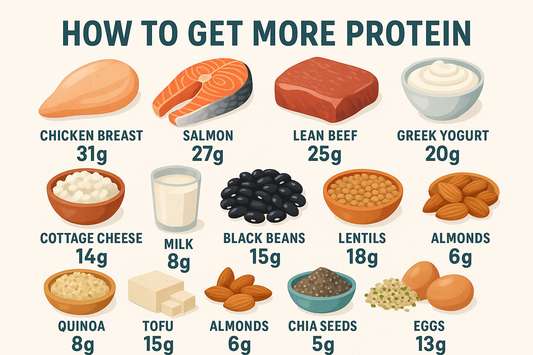UK Athletics Records by Age
Introduction to Athletics Records
UK Athletics Records represent the best performances by UK athletes that are officially ratified and recognised by UK Athletics (UKA), the national governing body for the sport. The introduction of the “British Record” in 1887 marked the beginning of systematic tracking of athletics performances in the UK, establishing a foundation for modern record-keeping. Various record types exist, including English Native Records and AAA National Records, reflecting performances by athletes from England, Scotland, Wales, and athletes representing UK clubs. Athletics records are essential for tracking the progress of athletes, identifying emerging talent, and celebrating excellence in the sport across all disciplines and age groups. The UK Athletics website provides comprehensive information on records, including senior, junior, and masters athletics performances, ensuring transparency and accessibility for athletes and fans alike.
Age Group Records
Junior Records
U20 (Junior) records track the best athletics performances by UK athletes under 20 years old, providing a benchmark for youth athletic excellence. These records are ratified by UK Athletics and reflect emerging talent in UK athletics, with a specific focus on age group performances and development. Junior records help identify future senior-level British record holders and top-performing junior athletes across the UK, serving as an important talent identification tool. Maintaining junior records supports the development of athletics clubs and youth athletes across England, Scotland, and Wales, encouraging continued participation and improvement. The UK Athletics junior records include events such as high jump, long jump, sprints, and middle-distance races, with performances tracked and verified regularly.
Senior Records and Competitions
Masters Athletics
Senior records include National Records (set worldwide by UK-eligible athletes), Native Records (set in the UK by UK-eligible athletes), and All-Comers' Records (set in the UK by any athlete). Masters athletics competitions are held for athletes over 35 years old, with age groups including M35, M40, M45, M50, and beyond for men, and W35, W40, W45, W50, and beyond for women. The UK Athletics Masters Championships are held annually, featuring comprehensive track and field competitions that celebrate veteran athletes' continued dedication to the sport. Masters athletes can compete in events such as the 100m, 200m, and 400m sprints, as well as field events like long jump, high jump, shot put, and javelin. The UK Athletics website provides detailed information on masters athletics, including records, results, competition schedules, and guidance for athletes looking to compete in this category.

Notable Record-Holders
Exceptional record-holders in British athletics have lovingly cultivated a tradition of wellness and personal growth, nurturing some of the most beautiful performances ever witnessed on the track and in the field. These dedicated athletes, flourishing across different age groups and regions, have not only achieved remarkable personal milestones but have also gently inspired countless others to embrace the nourishing journey of athletics throughout the UK and beyond.
In the graceful art of high jumping, Steve Smith's remarkable leap of 2.37m in 1998 remains a truly inspiring achievement among men, while Debbie Marti's uplifting 1.95m set in 1997 continues to nurture hope for women pursuing this beautiful event. The long jump has also witnessed moments of pure joy, with Chris Tomlinson's empowering 8.21m in 2002 and Shara Proctor's heartwarming 6.95m in 2012 both representing the finest expressions of natural athletic wellness in UK history.
Young athletes from the junior and youth communities have made deeply meaningful contributions to the UK's athletics family. Adam Gemili's spirited 10.08s in the 100m (2012) and Jodie Williams' inspiring 11.24s in the same event (2011) beautifully demonstrate how young talent can naturally blossom when properly nurtured. Reece Prescod's encouraging 10.42s in the youth 100m (2015) further reflects the abundant wellness that emerges when we tenderly support developing athletes.
Regional representation forms the caring heart of UK athletics, with Northern Ireland, Scotland, and Wales all lovingly cultivating world-class talent. Jason Smyth from Northern Ireland has gently guided new standards in both the 100m and 200m, representing the excellence of northern ireland in athletics., while Scotland's Laura Muir has beautifully transformed the wellness landscape in the 1500m and 3000m events. Wales cherishes Colin Jackson, whose nurturing 12.91s in the 110m hurdles (1993) remains one of the most naturally gifted performances ever achieved.
Athletics clubs serve as the gentle foundation supporting these athletes, providing the nurturing environments and holistic resources essential for personal growth and record-breaking achievements. Caring communities such as Cardiff Athletics Club and Emerald Athletics in Ireland are instrumental in fostering wellness, offering patient guidance and access to nourishing facilities. These clubs form the loving backbone of the sport, tenderly helping athletes of all ages and abilities to discover their natural potential and achieve their most fulfilling performances.
The positive influence of UK athletes extends far beyond national boundaries with warmth and grace. Many have participated in enriching international experiences, such as the New York and Boston Marathons in the USA, and the welcoming Guernsey Island Games, where athletes from England, Scotland, Wales, and Northern Ireland naturally flourish alongside the world's finest competitors. The sport of athletics truly represents a global wellness community, and UK athletes continue to share their gifts on the international stage.
For those seeking gentle guidance on records, holistic training approaches, and upcoming opportunities for growth, the UK Athletics website serves as a comprehensive wellness resource. It lovingly provides up-to-date information on achievements by men, women, juniors, and youth athletes, as well as nurturing support for clubs and coaches dedicated to fostering the next generation of naturally gifted performers.
The beautiful achievements of these exceptional record-holders reflect the dedication, natural talent, and patient perseverance that flourishes throughout UK athletics. Their performances gently guide future generations, ensuring that the pursuit of personal wellness and growth remains at the nurturing heart of the sport. As athletics continues to evolve with grace, the loving legacy of these athletes will inspire new achievements and unforgettable moments of joy on the track and field, both in the UK and throughout our caring global community.
Record-Keeping and Verification
Records are reviewed quarterly by the UK Athletics Record Committee, then authorised by the Track and Field Commission and UK Athletics Board to ensure accuracy. The verification process involves checking the performance data, including the time, date, location of the event, and ensuring that all records are properly classified and compliant with competition rules and regulations. UK Athletics uses a robust system for tracking and verifying records, ensuring the accuracy and integrity of the data through multiple layers of review. The record-keeping process involves collaboration with athletics clubs, event organisers, officials, and other stakeholders to ensure that all performances are properly tracked and verified. The UK Athletics website provides a comprehensive list of records, including senior, junior, and masters athletics performances, with historical data and current standings.

Performance Tracking and Analysis
Performance tracking and analysis are critical components of athletics, allowing athletes and coaches to monitor progress, identify strengths and weaknesses, and develop improvement strategies. The use of data analytics and sports science can help athletes optimise their performance, with a focus on achieving best performances through evidence-based training. UK Athletics provides resources and support for athletes and coaches, including access to sports scientists, performance analysts, and educational materials on best practices. The analysis of performance data can help identify trends and patterns, allowing athletes and coaches to make informed decisions about training intensity, competition strategy, and recovery. The use of technology, such as GPS tracking, heart rate monitoring, and video analysis, can provide valuable insights into athlete performance and technique refinement.
Achieving Best Performances
Achieving best performances requires a combination of physical training, mental preparation, strategic planning, and consistent dedication to the sport over extended periods. Athletes can benefit from working with experienced coaches and sports scientists to develop a personalised training plan tailored to their individual strengths, weaknesses, and goals. The use of strength and conditioning training, as well as nutrition planning and recovery strategies, can help athletes optimise their performance and reduce injury risk. UK Athletics provides resources and support for athletes, including access to training camps, competition opportunities, and mentorship from experienced athletes and coaches. The development of a growth mindset and a focus on continuous learning can help athletes achieve their full potential, overcome setbacks, and set new records.
Scottish and English Athletics
Scottish Athletics and England Athletics are two of the home country athletics federations in the UK, responsible for governing and developing the sport in their countries. Both organisations have their own records and championships, with events including track and field competitions, cross country, road running, and race walking disciplines. The Scottish Athletics Championships and England Athletics Championships are held annually, with athletes competing in events such as the 100m, 200m, 400m, and various field events. The development of athletics in Scotland and England is supported by a network of clubs, dedicated coaches, volunteers, and facilities across both nations. The UK Athletics website provides information on Scottish and English athletics, including records, results, competition schedules, and pathways for athlete development and progression.

Conclusion and Future Developments in Athletics
The future of athletics in the UK looks bright, with a growing number of athletes and clubs participating in the sport across all levels. The development of new technologies and innovations, such as advanced tracking systems, wearable technology, and virtual reality training tools, is expected to enhance the sport significantly. UK Athletics is committed to supporting the growth and development of the sport, with a focus on increasing participation, improving athlete welfare, and achieving excellence. The organisation is working to promote the sport and increase its visibility, with a focus on social media engagement, digital marketing, and broadcasting partnerships. The continued investment in grassroots athletics, talent development pathways, and world-class facilities will ensure that UK athletics remains competitive internationally and inspires future generations of athletes.













